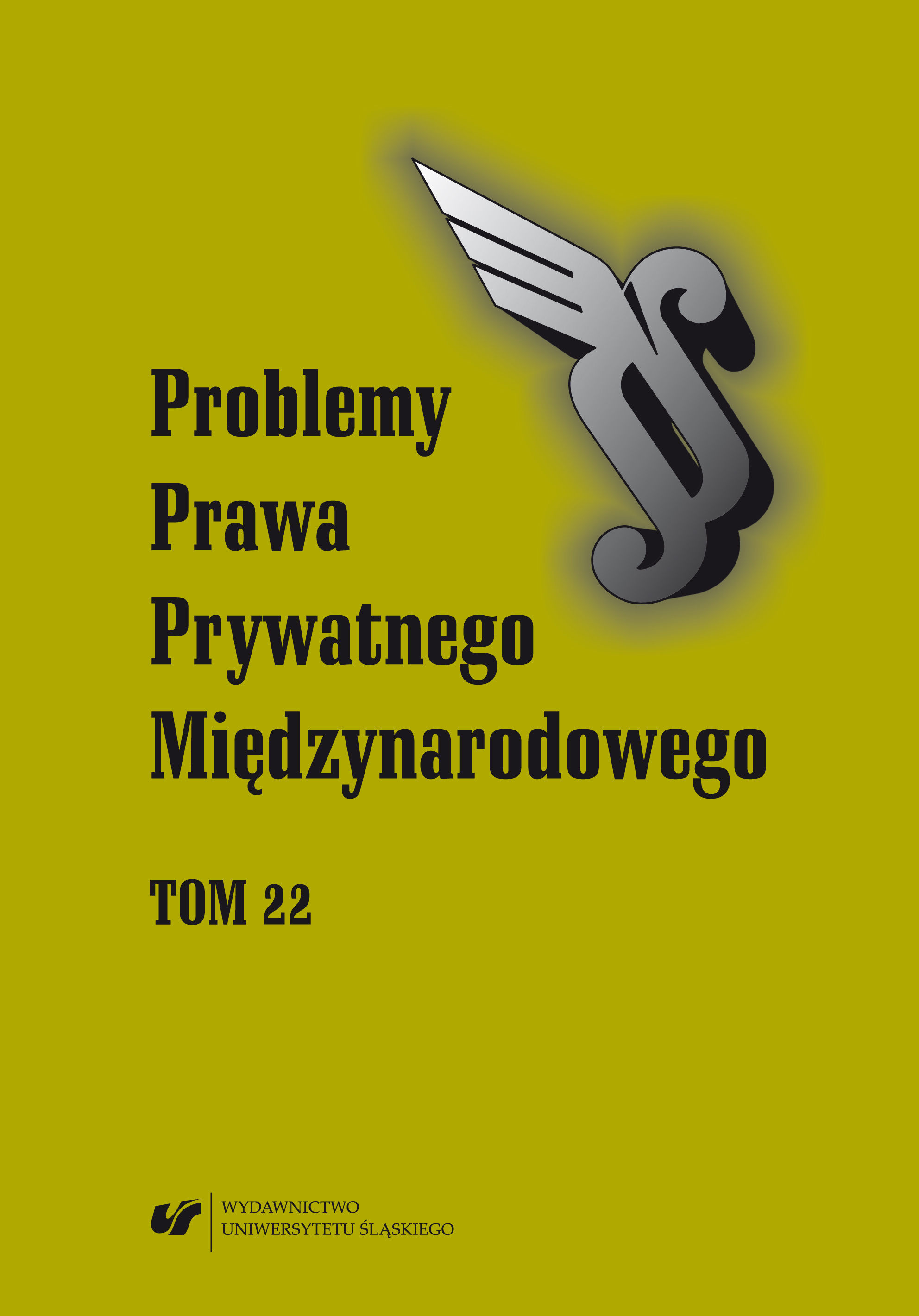The Questionable Impact of EU Regulations No 2016/1103 and 2016/1104 on the Identity of Marriage in a Member State
The Questionable Impact of EU Regulations No 2016/1103 and 2016/1104 on the Identity of Marriage in a Member State
Author(s): Piotr MostowikSubject(s): Law, Constitution, Jurisprudence, Civil Law, International Law, Human Rights and Humanitarian Law, EU-Legislation
Published by: Wydawnictwo Uniwersytetu Śląskiego
Keywords: EU Regulation No 2016/1103; EU Regulation No 2016/1104; Marriage; Registered partnership; Ordre pubic clause; Competences of European Union; Enhanced cooperation; Constitutional identity of EU Member
Summary/Abstract: The European Union holds no competence to enact substantive family law, however is entitled to exercise competences in the field of private international law sensu largo (rules on conflict-of-laws and international civil procedure). In the treaties this branch of law is referred to as “measures of judicial cooperation in civil matters” (Art. 81 TFEU). Such a cooperation not generally interfere with the fundamental legal principles of the forum (member state). One of the classic solutions, included in the general part of this branch of law, is the public policy clause (orde public clause, Vorbehaltsklausel).Despite of the limited scope of European Union’s competences, the recent development of European law raises issues related to the juridical expression of the identity of marriage. The presented detailed study of some recent legislative procedures shows that it could be otherwise. The possible affecting the understanding and identity of marriage in a Member State by EU Regulations No 2016/1103 and 2016/1104 are subject to the article.Arguments presented inter alia by the Polish parliament and governments in recent years during the legislative processes aiming to adopt the discussed regulations at the EU level, have to be supported. It seems, that the abovementioned remarks concerning the consequences of the regulations on matrimonial property matters and registered partnerships, which were subject to enhanced cooperation in several member states, could be also important for these states. Some of them can be not aware of all future practical consequences of the discussed new EU regulations. In particular the attention shall be paid to the practical effect of “importing” of foreign legal concepts and judgments, that govern the institutionalization of couples. Secondly, what can be astonishing, foreign law governing the details of contract applies not only within parties to contract but also with third parties in above mentioned situations, where the couple is not habitually resident abroad.The greatest concerns are raised by provisions, that — despite the lack of EU’s competences in field of family law — in practice not only amend private international law, but also cause unwelcome changes to substantive rules governing marriage (including rules perceived as fundamental ones in the state — e.g. marriage perceived in a common scope as the union between one man and one woman). The measures of judicial cooperation in civil matters should not result in obligation to recognize foreign redefined legal concept of marriage, because this would mean circumventing of the conferred powers principle (Art. 4 of Treaty on European Union).The motto of the European Union: In varietate concordia (United in diversity) is also worth recalling. Its essence should generally argue for a more cautious approach by the EU institutions and groups of scientists interfering with substantial family law matters of Members States.
Journal: Problemy Prawa Prywatnego Międzynarodowego
- Issue Year: 2018
- Issue No: 22
- Page Range: 29-49
- Page Count: 21
- Language: English

